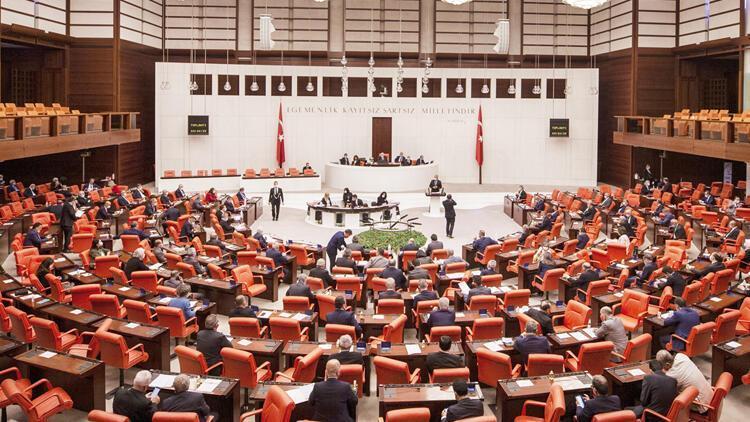AKP mulls changing election alliance rules
Nuray Babacan - ANKARA

The ruling Justice and Development Party (AKP) plans to make changes in the election laws so that each party in an election alliance would need to clear the 5 percent election threshold separately, a move that could prevent small political parties from forming groups in the parliament with the support of their allies.
As the practice of forming election alliance at the polls under the new presidential system de facto eliminates the election threshold, the AKP works on an amendment to stipulate threshold for each party aiming to make alliances to enter the parliament.
Nationalist Movement Party (MHP) leader Devlet Bahçeli recently proposed amendments on the political parties’ law, election law, and a renewal of the parliamentary bylaws. He raised the issue after the main opposition Republican People’s Party (CHP) leader Kemal Kılıçdaroğlu hinted that he could allow a temporary transfer of a group of his lawmakers to the Future Party, set up by former Prime Minister Ahmet Davutoğlu, and Democracy and Progress Party (DEVA), set up by former Deputy Prime Minister Ali Babacan, so that they can participate in the election in the event of a snap poll.
The study earlier aimed at preventing the new parties from transferring lawmakers to form a parliamentary group, which would automatically make them eligible to run in the elections.
According to the current law, having at least 20 lawmakers in parliament is enough for a political party to run in the elections even if it fails to fulfill other requirements. A similar scenario was realized when a group of CHP lawmakers joined İYİ (Good) Party temporarily before the 2018 elections.
But the AKP has changed its strategy and now aims a major legislative scan, including topics such as “new alliance models, election threshold, narrowed region” model at the elections. Along with reducing the election threshold to 5 percent, an increase in the number of election districts is also on the agenda.
The AKP does not lean towards an exactly “narrow region” model in election system, but favors a similar model which would have more elections districts at the metropolises.
Turkey currently uses a proportional electoral system in which each of the parties win the percentage of seats, which is equal to the percentage of votes in each province, with Istanbul being divided into three constituencies and Ankara, İzmir and Bursa in two.
The AKP reportedly formed a committee on the issue which will launch its study this week. The committee, headed by AKP Political Affairs Chair Hayati Yazıcı, will continue its work throughout the summer, and a new package of amendments that will include major changes to both the political parties law and the election law will be sent to the parliament when the new legislative term opens in October.
















